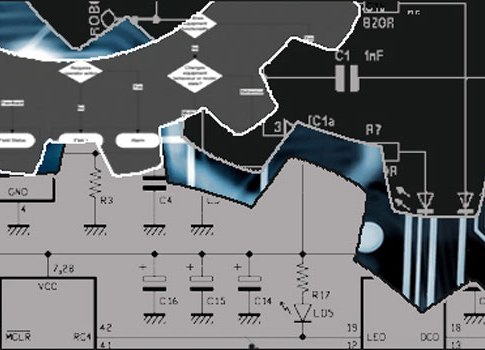Automation System Integration Blog: Need project management motivation to avoid lost money, upset customers, and loss of good employees? Learn these three things from Anthony Baker.

In a previous posting Anthony Baker talked about quantifying things and not letting a blanket expectation (like “I’ll do some screens”) exist within your organization. What happens though? What if you don’t control these well-intended vagaries? I can confidently say that, in my experience in the software integration industry, three things happen in order: losing money, frustrating the client, and breaking people. Without clear communications, expect the same order and same effect, over and over.
1. Projects lose money
Projects that are well scoped, with clear expectations for all, rarely lose money. It becomes easy to say, “We promised you a system with up to 100 motors, and now you have 200 motors. Could we discuss either a change order, or reduction in scope to keep us on track?” If you aren’t managing things well, you start to lose money. (If you don’t even know where you are in the budget, you are in for a real beating!) You end up doing silly things, such as: “Well, I’m not sure if this is in scope or not, but the customer scope of work [SOW] alludes to it, so we need to do it, even though we have no budget.” BAD DEAL.
2. Client gets upset
Now you’re losing money because the client doesn’t understand what was promised, and you can’t clarify it either. No matter how many things you do, the client will be disappointed. You thought you were to design 5 human machine interface screens, they thought it was supposed to be 25. You compromise and agree to do 15. You’re out 10 screens, and they still feel like they are owed 10. BAD DEAL.
3. Excellent people quit
You can recover from losing money, you might even get to it soon enough to stop frustration. If you don’t handle 1 and 2, you will have people quit on you. They are burned out, they are spending time getting those “extra 10” screens done, but everyone is still upset. The project manager puts pressure on the team to get things done in “zero time” because there is no money. The client is still upset at the outcome, even if the team does great work. The boss is upset because things have not gone well.
The worst part is that the high performers quit. When things go south, the normal response is to put high performs in to “fix the problem.” High performers love helping people—but they expect appreciation when it happens. In this case, they are just fixing a problem generated out of poor expectation management, not a great challenging customer problem where everyone gives high-fives at the end. These people will leave your business if you are not careful. Don’t let this happen! WORST DEAL.
Project management remedies
So, how do you repair failures to manage expectations related to system integration (or other project management)? The easy answers are obvious:
1. Ensure you have real-time data on project dollars. Hours worked = money spent = real-time data. You can’t tell if you are losing money mid-project if you don’t have real-time data.
2. Make sure you have clear SOWs and are constantly managing to them with the client. If you are doing work and can’t point to a deliverable in the SOW, why are you doing it?
3. When the going gets tough (and it will, no matter how great a company you are), be appreciative. Be clear with the development team you pull in last minute that you appreciate the help. Even more than this: show the team what you are changing in the business to avoid this in the future. An example of this would be, “Gee, team, we really ran into a difficult one here. Please help us out; we really appreciate you sorting through this. As a note, we have reviewed the SOW and it was not that clear. We are putting a formal review process in place to ensure all SOWs that leave this office clearly spell out expectations. For the next one that leaves this office, who here would like to be on the review panel?”
To be fair, all of this is easy to write about, but can be challenging to execute consistently and across the many projects a system integrator executes with clients (hundreds each year at Callisto). Keep at it and remember the three things that will happen if you don’t: loss of money, angry customers, and loss of good people. Let these motivate you to get control into your business.
– The Automation System Integration Blog aggregates expert advice from Callisto Integration, providing manufacturing consulting and systems integration. This blog provides integration advice in plant-floor controls, manufacturing execution systems (MES), and manufacturing consulting, from the factory floor through to the enterprise. Andrew Barker, P.Eng., Callisto Integration, compiled the advice. www.callistointegration.com
See other Automation System Integration Blog postings linked below.
Callisto Integration is a CSIA member as of 3/1/2015



